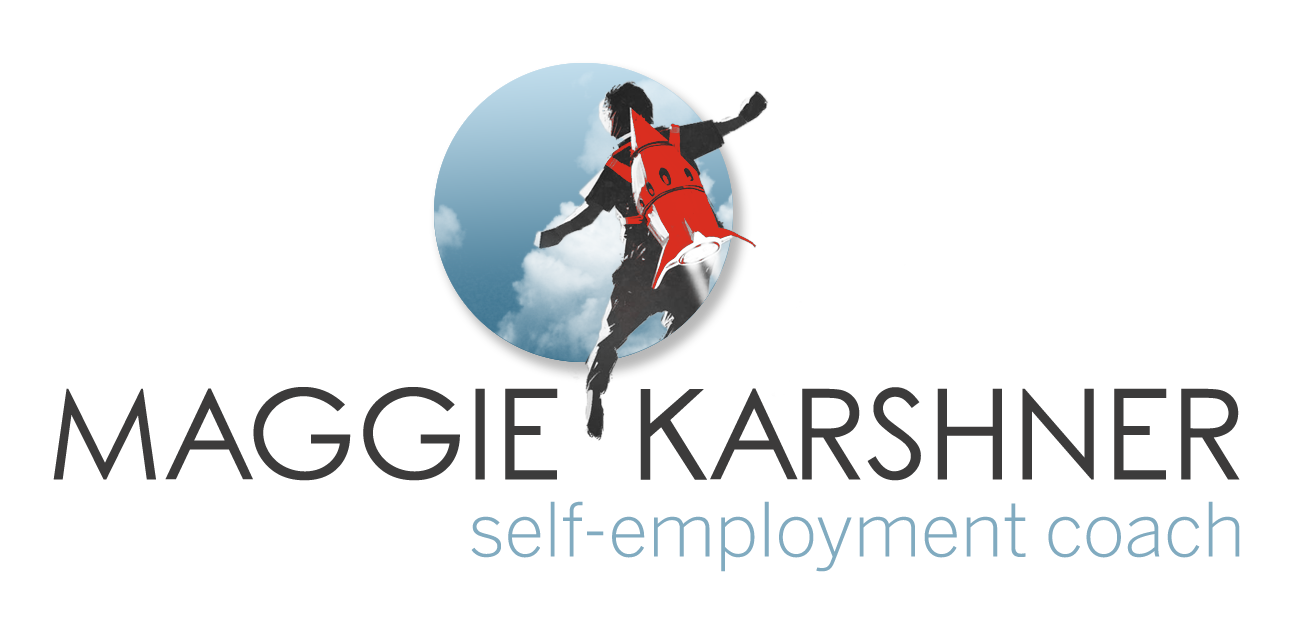How to Easily Optimize Your Self-Employed Workday
/Image shows title of the article laid over an image of a woman with arms outstretched, gleefully being showered in confetti.
Do self-employed people work 8 hour days? Plenty of us don't. I appreciate that Organized Labor introduced the concept of "Eight hours' labour, Eight hours' recreation, Eight hours' rest". This was a significant improvement over +10 hour days. And, it's still a wild generalization that's not a perfect fit for everybody.
A New Measurement
In wage work, hours matter. In self-employment, it's often more complicated than counting hours. Some tasks involve more stress or emotional effort than others even if they take the same amount of time. Getting started at self-employment involves learning new skills surrounding operating a business. Learning and practicing new things takes more energy. These factors make time an unhelpful measure of productivity.
Let's stop thinking of "hours" and start thinking about *units.* A unit is a measure of energy more than time. Think of the energy consumed by a 45 to 60-minute meeting. In this meeting, you're engaged the whole time and exercising your craft competently. You're enjoying what you're doing but not so much that you're energized by it. You're not bored, but you're also not learning or challenging yourself to develop skills. You're operating from within your comfort zone for a scant hour. That's approximately a unit.
There are going to be differences among types of work. An hour of massage work is going to be more physically taxing. An hour of talk therapy is going to be less physically taxing, but probably more emotionally taxing. Your work might not take the form of meetings at all, or a typical meeting might be longer than an hour. We're using "units" to reconceive of our work, adding more fuzzy edges. This is by design.
Define What is Enough Work
In employed work, we often have an 8-hour day. In reality, most people don't have 8 hours of focused energy in a day. We spend a lot of that time between tasks, off-task all together, or at mind-numbing meetings. But regardless of how much we focus or goof off, when we work more than 8-hours, we validate that we're working too much.
Having a measure of when we've done "enough" is key for giving ourselves permission to put work down for the day. When we've done "enough" we also ascribe value to our efforts. This is why units are so important for those of us breaking away from employed work. Units are a tool by which we can set an expectation of how much will get done within a day. Units can also demarcate when to put work down for the day.
5-units per day works well for me. This means that if I see 5 clients one day then I know I'm not going to get around to writing my next blog article. And on the flip side: if I only have 2 clients another day, I can expect that I'll be able to do 3 other significant tasks. (Or spend all three units on the blog article, because that's at least how much those take!)
It seems like 5-unit days are appropriate for a majority of people. Your type of work and your personal preference may vary that number, so tailor it as you see fit! Also, circumstances can change that number. Early in Covid, I found a 3-unit day was as exhausting as a 6-unit day! Pick how many units is most sustainable for you. The key here is that you will probably not have 8 units per day, because that is a super-human amount of focused energy. And when you're self-employed there's a lot of focused work to be done!
Is this REALLY a Unit?
When I share the 5-unit day paradigm with clients, they often get in the weeds about what counts as a "unit." If it feels like a unit, then it probably is. The average email or phone call usually isn't a unit. Non-units are the things you do when puttering between units.
But those mundane things could become units in certain circumstances. Here are a couple of examples: when you return from vacation to hundreds of emails in your inbox. Sitting down to triage through them is definitely a unit! When you've got to make a phone call to a particularly challenging client. The call might only take 10 minutes, but it might consume a whole unit of energy.
It's the energy consumed that defines a unit, and it's not a hard and fast quantity. Time takes up a baseline amount of energy. We consume more energy when learning, facing something uncomfortable, or doing anything difficult. When you've expended approximately the right amount of energy, then you get credit!
Try it Out
Take a look at a current task list. Examine each item one by one and estimate the time/energy each will take. Identify if they are a "unit" task or "less than one unit" task. After a workday or two, notice how many units you accomplished. At the end of your workday, how did you feel? Let this information influence your expectations in the future. Hold yourself with kindness when investing energy in your units.
Many kudos to Laura Humpf who invented the notion of a "5-unit day."




